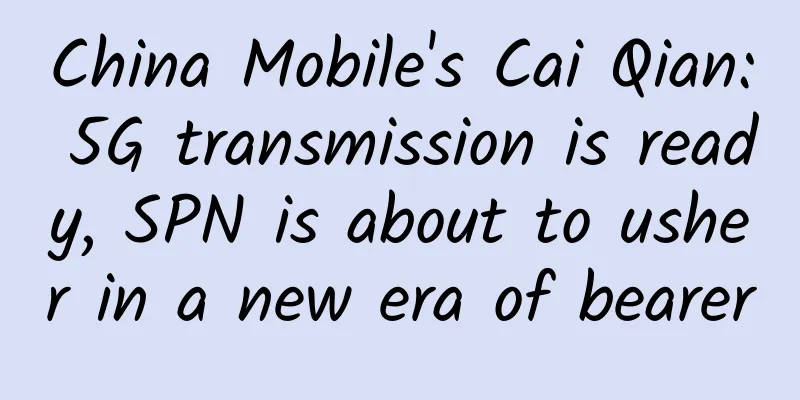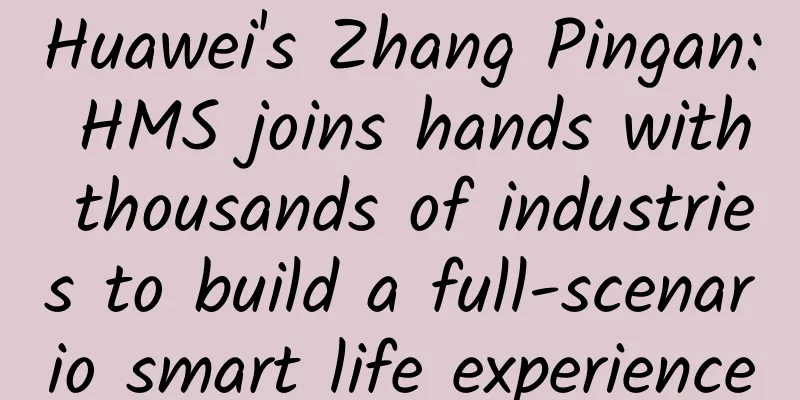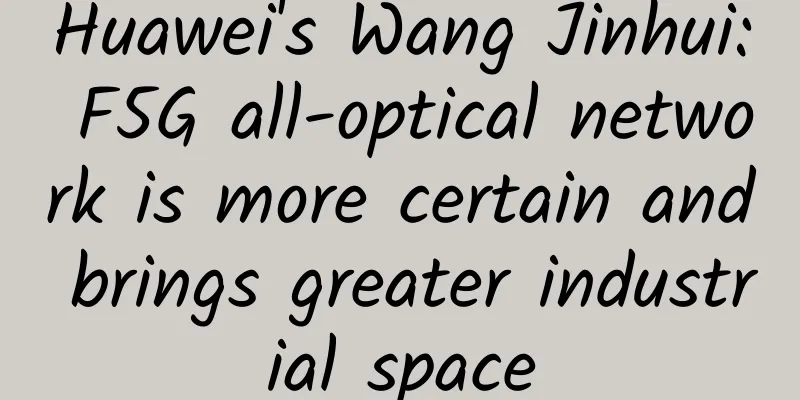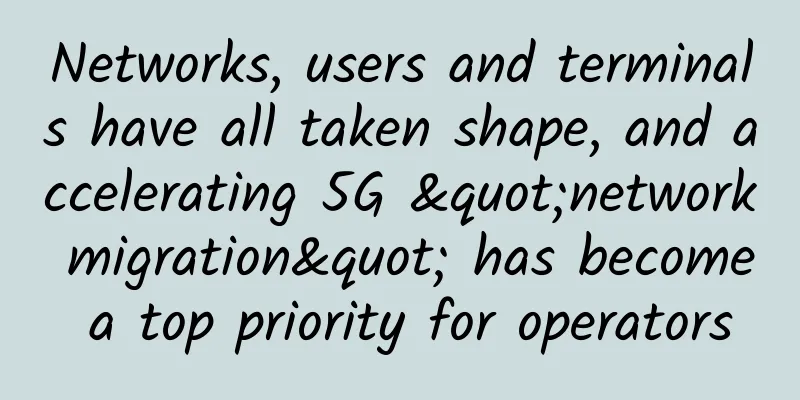If all operators become Yang Bailao, what will they use to build 5G?

|
At the IT Summit held in Shenzhen, someone finally spoke up for the operators, even if it was still unofficial, but it was still a voice. This person was Huang Xiaoqing.
Huang Xiaoqing was once the president of China Mobile Research Institute. Now he is starting his own business. He is very familiar with the operator industry, so he said, "As a very important infrastructure, global mobile operators are facing a great dilemma. The dilemma is that companies have weak growth and shrinking profits, but they still have to invest in 5G. Operators lack the motivation to invest in 5G." President Huang Qian said the truth, and he also analyzed that with the increase in traffic, the revenue of Internet companies is growing faster and faster, while the number of operators will no longer increase despite the increase in bandwidth, and the mobile phone penetration rate is close to 100%; in addition, after the popularization of *** traffic packages, the user ARPU value will no longer increase, and the revenue growth of operators has entered a bottleneck period. Operators need to build 5G, and the investment will be very large. Wei Leping, executive deputy director of the Ministry of Industry and Information Technology's Communications Science and Technology Committee, said that based on capacity base stations, 5G investment is about 1.5 times that of 4G. Overall, the national 5G investment is expected to reach 1.2 trillion yuan. However, according to current information, China Unicom will invest 6-8 billion yuan in 2019, China Telecom will invest 9 billion yuan, and although China Mobile has not given clear guidance, the estimated investment amount is only about 20 billion yuan at most. This amount of money is definitely a drop in the bucket for 5G construction. The reason for this is that let's take a look at the revenue of operators. According to the latest operator financial reports, in 2018, China Mobile's revenue was 736.819 billion yuan, a year-on-year increase of 1.8%, and its net profit was 117.781 billion yuan, a year-on-year increase of 3.1%. China Unicom's revenue was 290.877 billion yuan; its net profit was 10.257 billion yuan, a year-on-year increase of 458%. China Telecom's revenue was 377.124 billion yuan, a year-on-year increase of 3%; its net profit was 21.21 billion yuan, a year-on-year increase of 13.9%. Comprehensive calculations show that the three major operators had a revenue of 1,404.82 billion yuan and a net profit of 149.248 billion yuan in 2018, with an average daily profit of about 409 million yuan. This is really a lot of money, but if you do the math, the operators have more than 1.5 million employees in total, and their profits are only twice that of Tencent, while Tencent has only more than 50,000 employees in total. In other words, the operator's profit per employee is only one-fifteenth of Tencent's. The profit levels are so different that one is on the ground and the other is in the sky. Let's do some simple math. If 5G requires an investment of 1.2 trillion yuan, and all the profits of operators in 2019 are invested, it will take about 10 years, not to mention the payback period. Compare it with 4G, which has only been in operation for 5 years since it obtained the license in 2014. How poor is the return on investment? Therefore, it is incomprehensible that China Mobile's market value is only one-third of Tencent's. The dilemma that operators are facing now is obvious. The number of users has reached the top, and the total number of users of the three operators has exceeded 1.5 billion. The so-called new users are just one person with multiple phones. This kind of development is no longer meaningful. Through continuous speed increases and fee reductions, the unit price continues to decrease, and the user traffic growth is not large enough. Therefore, it would be strange if the total revenue of operators does not decrease with the rapid decrease in consumption of each user? In contrast, a single skin from Tencent's Honor of Kings can generate hundreds of millions in revenue. Other Internet companies have also benefited greatly from the growth in traffic, with revenue increasing at an annual rate of more than 30%. Smart terminal companies have also seen an increase in revenue as users have to change their phones, and equipment manufacturers are looking forward to upgrading their communication networks. Everyone benefits, but the operators, after building 5G, have to operate multiple 2-5G networks at the same time. The number of users is not increasing, the cost is rising, the unit price is falling, and the growth of traffic usage is slow, which has become a real losing business. In this case, Huang Xiaoqing believes that the solution to this problem lies in business model innovation. Operators should change the past bandwidth sales into revenue sharing. "The revenue sharing business model is the 5G business model. Otherwise, 5G will not work." In fact, in the 4G era, there have been many explorations on the profit-sharing model, but none of them have been successful. For various reasons, the operators have lost more and more power in terms of discourse power. The benefits of 4G broadband Internet have basically flowed into the pockets of global Internet companies, while the operators have still worked in vain. We must be aware that this development model is no longer sustainable. If Internet companies cannot give up some of their profits, the consequence will inevitably be stagnation of network construction and a decline in operation and maintenance levels, which in turn will inevitably cause Internet companies to lose the foundation for their progress. This is a grasshopper on a rope, and no one can escape. Operators have also issued appeals, but they are still in the hint and exploration stage. Wang Xiaochu, chairman and chief executive officer of China Unicom, said that if a better business model is found, it can bring value to all shareholders, and 5G capital expenditures can be adjusted in the second half of the year in response to market demand. Yang Jie, the new chairman of China Mobile, said that China Mobile will actively explore new business models for 5G, including billing models. Ke Ruiwen, acting chairman, president and chief operating officer of China Telecom, said that 5G involves a large investment. In the face of 5G investment, the most basic thing is to maintain profitability to ensure long-term development. Only when friends are good, can you be good. Only when neighbors are good, can you be safe. This truth often takes time to be recognized, but the process is often disastrous. Internet companies are enjoying themselves, but ignore the hard work of operators. In the end, no one can live happily. We believe that there are experts in this field. They understand this truth and will come up with a solution. |
<<: What is the difference between 5G and 5GHz Wi-Fi?
>>: GSMA: China is expected to have 460 million 5G connections by the end of 2025
Recommend
Use the PipedInputStream class and the PipedOutputStream class to learn about communication between pipe streams.
[[433836]] Hello everyone, I am a Java expert. Pr...
4G investment has been frozen. China Telecom: It will take 3-4 years before you can use 4G and 5G with confidence
5G exploded in China in 2020. Have you changed yo...
Akamai Launches Prolexic Network Cloud Firewall
April 25, 2023 – Akamai Technologies, Inc. (Akama...
Dataideas: $1.5/month KVM-1GB/10G SSD/unlimited data/Houston (Texas)
Dataideas is a foreign VPS hosting company establ...
Hosteons: $7/month VDS-Ryzen7950x/4GB/25GB NVMe/15TB@10Gbps/Salt Lake City Data Center
Hosteons tested the Hybrid Servers (VDS) product ...
Detailed roadmap for 5G standards
[[429204]] While 5G has been a hot topic for year...
Which 5G core patents cannot be circumvented by others? Huawei responds
According to the Huawei Voice Forum on June 29, o...
Which 5G package is the best? Each of the three has its own advantages. You should choose based on your actual usage needs.
5G network has many advantages such as high speed...
Ministry of Industry and Information Technology: my country's number of number portability users has reached 26 million
Today, at the press conference on the development...
Currently, CDN security is far from enough
Today, many businesses realize that DDoS defense ...
India's 5G auction ends: government earns $10.6 billion, but no one is interested in 700MHz
India’s latest spectrum auction ended after two d...
China Unicom and its partners release the Trusted Network White Paper
On July 9, 2023, China United Network Communicati...
Let's take a look at what new tricks Huawei has come up with during its ICT Ecosystem Tour in China!
[51CTO.com original article] At the Huawei China ...
Five API Gateway Technology Options
This article intends to discuss gateways around s...
I2C case using SHT3x-DIS temperature and humidity sensor
To learn more about open source, please visit: ...









